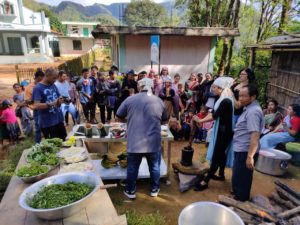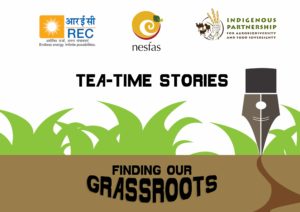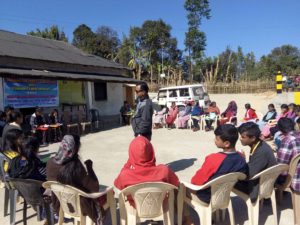While the ‘No one shall be left behind’ project funded by the REC ran its race in the latter parts of 2021, the New Year has started with the same old goals for NESFAS albeit under a different project this time. Towards the end of the previous project, NESFAS entered into an agreement with MBMA for an 18 month long project on “Empowering Indigenous Communities through Agroecology Learning Circles (ALCs) for resilient, integrated and innovative natural resource management.” which is funded by the World Bank.
ALC is a multi-faceted model for community engagement and innovation that helps to reveal knowledge holders; co-create and test new solutions; document and disseminate them. Unlike many other innovations, ALC is a bottom-up approach and innovation that documents traditional knowledge, undertakes natural resource management, conserves agrobiodiversity, initiates technical innovation and builds self governance. The project was drawn up after acknowledging the impact ALCs had on the 29 different villages it was implemented in during the last project while also recognising the further impact it can have when implemented to a larger number of communities. As one of the first activities of the project, 12 staff members were given orientation on the project before the organisation rolled out with the General Awareness Programmes in the project villages.
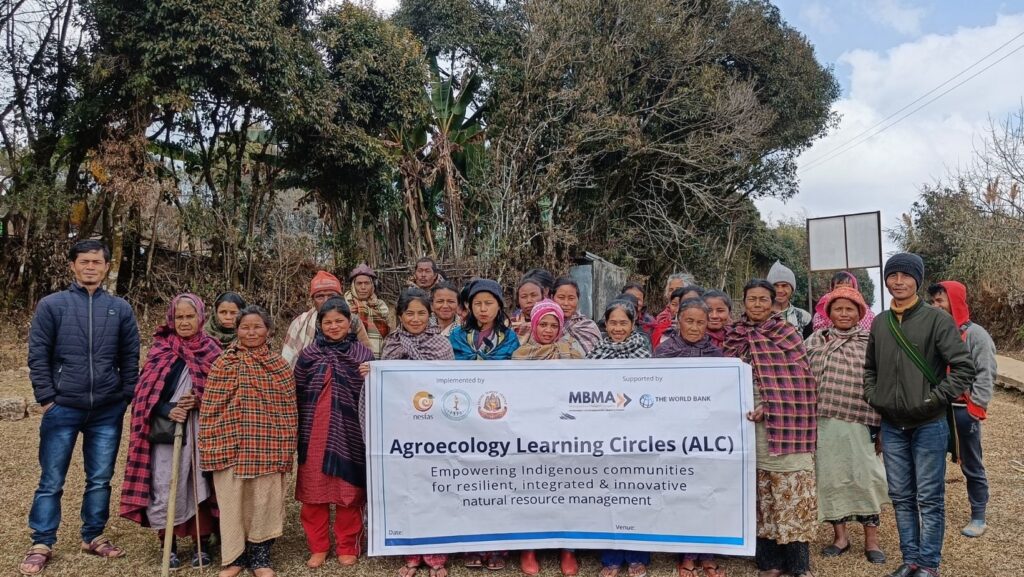
The First Stage (Stage I) of the project is focused on creating awareness on the project as well as building trust among the newly selected 71 villages through General Awareness Programmes. Over the course of the past month, 99 of the targeted 100 general awareness programmes have been conducted across the various communities from the project villages. These general awareness programmes are aimed at explaining the project’s goals, objectives, and activities. Concept of agroecology and its components have been discussed in these programmes with emphasis given to the traditional farming system that has proven to be agro ecological sustainable.
“ALC concept is a very important subject, and must be taken and discussed in the committee of the village Dorbar separately, so that people in the community take it seriously” Bah Benistar Rani, Headman of Ladmawphlang.
The first phase of the project has been met with welcome arms by community members with 100 Community Facilitators have also been selected and trained/oriented to help amplify the project. To date, 3470 community members have participated in these general awareness programmes after which 98 communities (out of a 100) have signed the Free Prior and Informed Consent (FPIC), and accepted the project.
“The community members have started to understand the importance of our food system and many are coming forward wanting to be part of the project”, Barisha Khyriem, Community facilitator from Mawkma.
Community members also actively participated in the discussion and expressed their experiences of the previous project and their expectations of the current project. Kong Sibiana Lyngdoh, a Community Facilitator (CF) from Lad Mawphlang village expressed her gratitude towards NESFAS as well as the community people for their full participation during the REC project. She reflected and reminded people on how the “No one shall be left behind initiative” project changed the mindset of the people in her community through their active participation in various campaigns and training and urged the community people to continue their hard work and cooperation in the coming project.
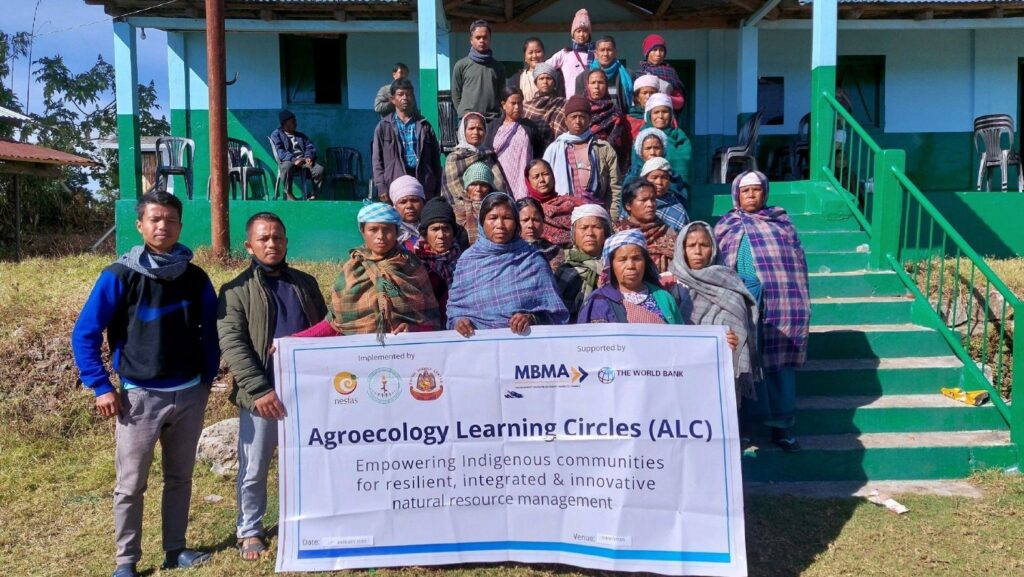
“This project is very interesting, especially for farmers. We will get the opportunity to come forward and share our knowledge to the society” Monica War, farmer from Mynso community.
The challenges faced by food producers and local farmers were also highlighted and the strengths of the Indigenous Food Systems to address the issues of climate change, unsustainable production, loss of traditional knowledge were also discussed. Participants shared their observation in the changes they have observed in their farming practices over the years and reflected upon how actions need to be taken to conserve the natural resources of agrobiodiversity. Emphasis on soil health and soil related issues were tabled with some of the farmers admitting to using chemical pesticides in their farms in the past but voiced their willingness to experiment with the traditional methods of pest management that would be shared among the ALC groups.
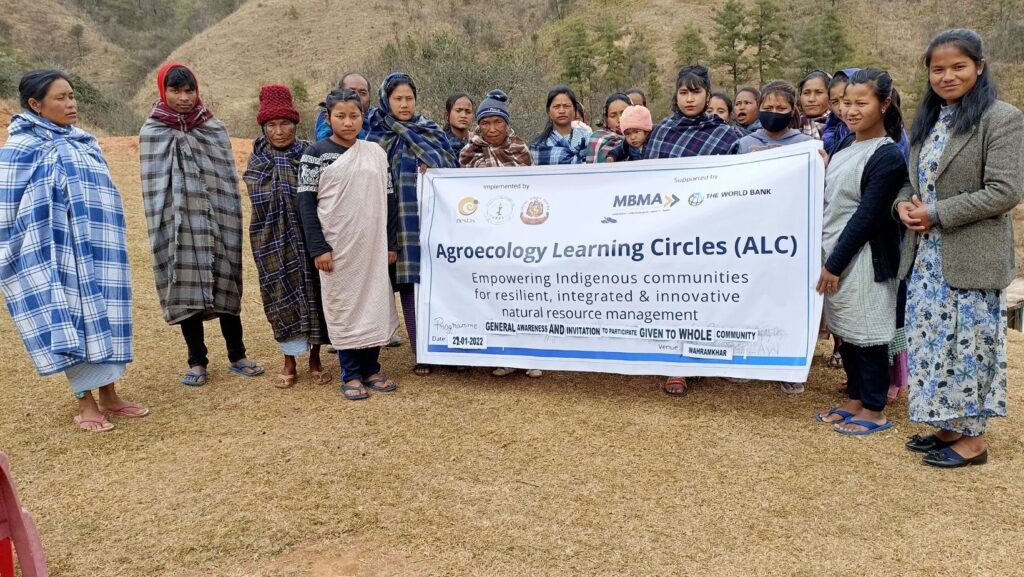
“The coming of this project helps us to look back at the old age practices practiced by our forefathers relying on their own knowledge without using chemical fertilizers”,
Emrit Nongrum, Community facilitator from Wahramkhar.
Some farmers also share the findings of the experiments with traditional methods of farming and pest management they conducted in their own fields. The importance of documenting and recording these successful experiments were also discussed.
“This project gives us farmers the platform to preserve and promote our traditional farming/knowledge through documentation which we never used to do”,
Wanklis Pale, farmer from Longliwit.
There was also a consensus to conduct participatory research through these ALCs. The importance of preserving local seeds/varieties and the need for community seed banks and seed exchange programs to facilitate this was among some of the many pressing issues brought forward by the farmers. Farmers also voiced their opinion on domestication of wild edibles as a means to increase diversity in kitchen gardens.
“We have always spoken about kitchen gardens but it was never adopted to the full scale by the community. We want that through this project we will see that all households have a kitchen garden” Shaiphar Dohling, School headmaster, Dewlieh community.
The General Awareness Programme is set to be completed in the coming weeks and will be closely followed by the formation of ALC groups and the community-led ALC Kick-Off workshops. Here, allocation of roles, responsibilities, meeting schedules and the other nitty gritty for taking the project forward is set to be discussed and chartered out.

